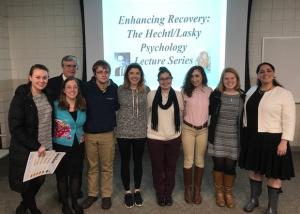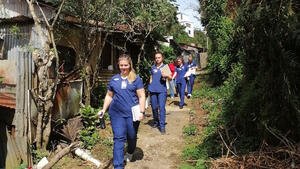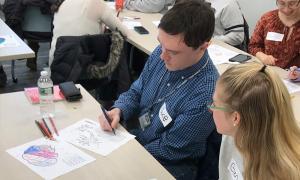article
Mental Health Speakers Discuss Issues of Stigma, Inclusion and Diversity
On Tuesday April 4th, 2017, the Psychology department of Saint Anselm College hosted the 4th Annual Hechtl/Lasky Lecture Event. The series is in honor of former faculty members Richard Hechtl and Julian "Jack" Lasky, who were leaders in Saint Anselm College's Psychology department, having devoted their careers to promoting wellness through basic and applied psychology research. This year, the department welcomed Hon. John Broderick, former Chief Justice of the New Hampshire Supreme Court, as well as Dr. Lorena Estrada-Martinez, Assistant Professor at University of Massachusetts-Boston, to discuss how the community can promote wellness for youth of color.
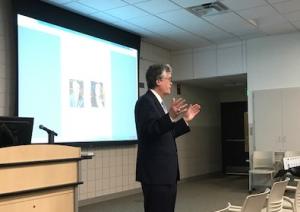
Broderick is working to promote the “Campaign to Change Direction” to help spread awareness of mental health. The campaign is working to promote possible signs of mental illness, including personality changes, agitation, withdrawal, poor self-care, and hopelessness. While talking about the campaign during the lecture, he said his understanding of mental illness comes from his own personal struggles with his own son. Broderick described how his son was brave for allowing him to use his story to
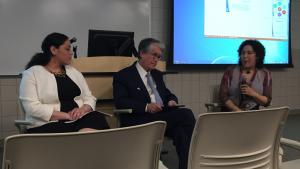
help promote his campaign. Broderick said that he had talked to many different age groups over the past year promoting the campaign. Using his son’s story within his talks about the campaign helped to make a connection with the people he was talking to. John Broderick believes that by spreading the simple concept of “Knowing the Five Signs” of mental illness, this will help bring awareness to the extreme issue of mental health stigma in a general sense.
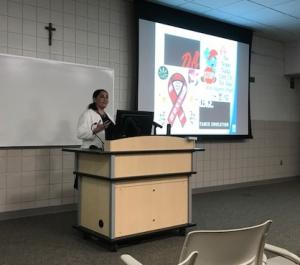
Dr. Lorena Estrada-Martinez is a social epidemiologist who is interested in making the “Campaign to Change Direction” more inclusive of and effective for communities of color. Dr. Estrada-Martinez commemorates the campaign for moving towards reducing the stigmas of mental illness and putting mental health at the center of health conversation, but still feels that the conversation needs to improve on inclusion across race, religion, ethnicity, and gender. Dr. Estrada-Martinez outlined three important factors that she believes will lead to conversation in all communities. First, addressing the Outcome and Audience Specificity. This addresses the need to intervene at all levels by examining the disparities of suicide behavior and mental illness. She also touched upon how the public service announcements on the Change campaign website are not as diverse as they could be and should be more representative of all cultures. The second factor is understanding the Social Determinants of Mental Health. This factor looks at the varying access to quality healthcare, good neighborhoods, and positive life experiences between the different communities. Dr. Estrada-Martinez exemplifies that
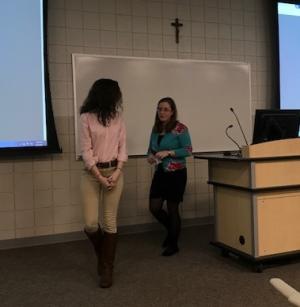
communities of color are not given the same opportunities to access these determinants as White communities. Communities of color often are more likely to be uninsured and have poor communication with their healthcare providers, experience different racial and ethnic socioeconomic inequality, and witness trauma during their childhood. The third factor is Program Evaluation. This involves looking at the goals and objectives of the programs, the activities used to complete those objectives, the methods to assess the effectiveness of the program, and the decision-making based on data, revision, and modification. She also suggested to engage in others’ work towards ending the mental illness stigma and including people of color in order to limit the growth of disparities in communities of color. Dr. Estrada-Martinez concluded by stating that there are many steps between raising awareness and seeing a reduction in the stigmas. These steps are going to be different in all communities because there is not one direct path to follow. There is not one campaign that will be able to address all of the problems with solutions and there is a need to have a political conversation of health equality to see a change. Hearing from Dr. Lorena Estrada-Martinez and Hon. John Broderick was a great opportunity for the Saint Anselm College community to meet and network with leaders in the field of mental health. We thank them for sharing their work and perspectives with us.
